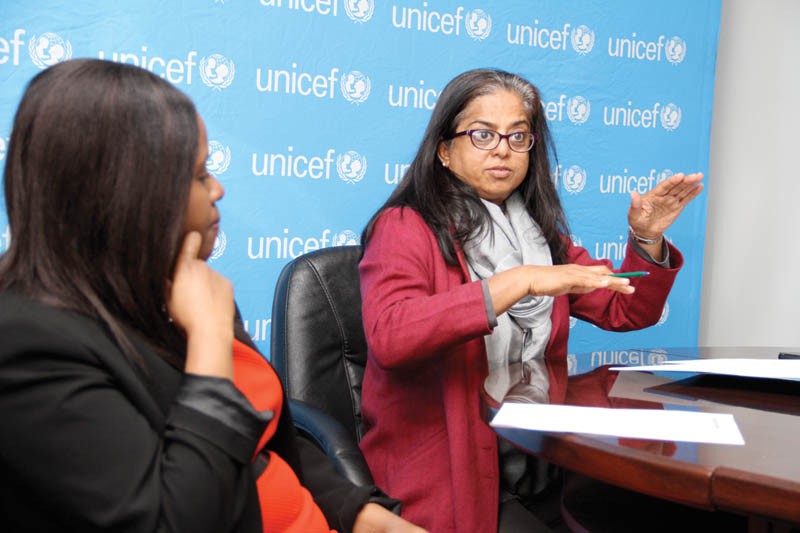June 16 tackles child marriage
Baboki Kayawe | Wednesday June 17, 2015 16:30


A child protection specialist with the United Nations Children’s Fund (UNICEF), Ben Semommung said this during a media briefing to mark The Day of the African Child yesterday. The day was commemorated under the theme, ‘25 Years After The Adoption Of The African Children’s Charter: Accelerating Our Collective Efforts To End Child Marriage In Africa’.
However, owing to statistical challenges, he could not provide figures on the extent of the prevalence among these communities.
Semommung said the fact that arranged marriages were still prevalent in the North West would explain why the district is the most afflicted by child marriages.
This is against the revelation of the Population and Housing Report 2011, which places child marriage incidents at one percent in the country. “Despite the low incidents of child marriages in the country, we have serious problems in the North West region and the other most impoverished districts. There is a need to raise awareness in these areas,” Semommung said.
Another eyesore is the staggering number of teenage pregnancies and HIV/AIDS prevalence among adolescents. The latest statistics on school dropouts from 2012 indicate a total 2,836 students dropped out at secondary school level that year. This constituted 1,658 females and 1,198 males according to the report. About 801 females dropped out due to pregnancy, while four were due to marriages.
Although child marriage is not prevalent, UNICEF country representative Vidhya Ganesh said the rate at which Botswana was grappling with teenage pregnancies, and HIV/AIDS caused concern.
“Adolescent pregnancy brings harmful social and economic consequences for the girl, her family, her community and the nation at large. And just like child brides, teenage mothers are often faced with numerous challenges in health, access to education and poverty,” she said.
While 2.1 million adolescents are living with HIV globally, 82 percent of them in Sub Saharan Africa, Botswana has 7.9 percent of her population aged between 15 and 24 affected by the scourge.
Ganesh added that child marriage is the greatest obstacle to girls’ education and violation of human rights. Combined with teenage pregnancy and HIV/AIDS, she said that perpetuates generational poverty as well as gender-based violence since child wives tended to have more children, and fewer independent income options.
Though she hailed local policies for being inclusive and accommodating girls who fall pregnant at a tender age through having a process in place for re-absorption in the school system, Ganesh called on the health system to strengthen outreach programmes on sex and sexual issues.
According to the International Centre for Research on Women, 51 million (m) girls between the ages of 15 and 19 are currently married, with a projected 100m to be married before 18 in the next decade.
Men, 33m of them, are also said to be married to date prior to the age 15, and 156m before they are 18.
